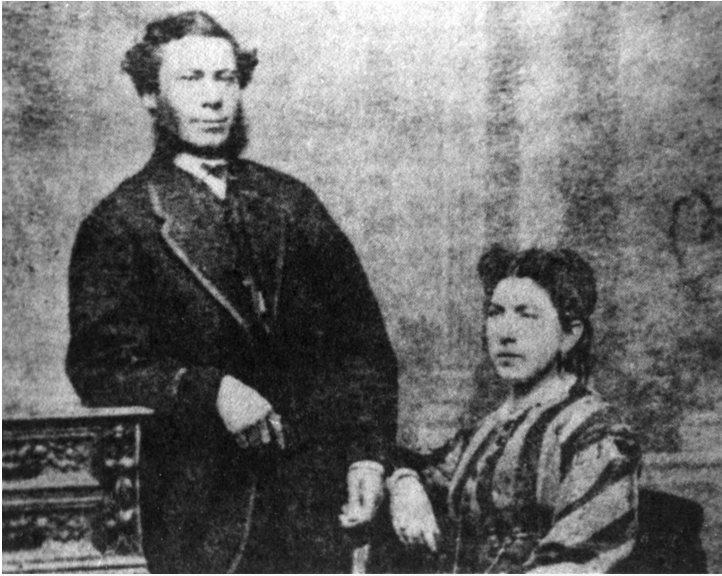Drachmans in the Old West, and the Oxford Comma
Steven S. Drachman: I came to the role of “Author of Westerns” in a weird sort of roundabout way. Back in the late 1980s and early 1990s, I was writing these literary urban novels just as everyone was getting sick of “that kind of thing.” My agent at the time suggested that I write a continuation of a great cancelled show that I was more than a little obsessed with, a SF Western. Discussions actually got relatively far along, but nothing came of it, and eventually he suggested that I write my own, which is how Watt O’Hugh came about. I did really immense amounts of research on the old West, and I think it comes off, now, as accurate and authentic, other than the dragons.
It helped my own imposter-syndrome whenever I read about the secret history of Jews in the old West.
None moreso than the following story.
Harry Arizona!
A man named Harry Arizona Drachman was the first American born in Arizona territory to two American (that is to say, not-Native-American) parents, Philip and Rosa Drachman, who ran a cigar store, and are pictured above.
Intentionally or not, Harry Arizona Drachman has a beautiful rhythmic sound to it. (Sing it to the tune of “Gary, Indiana” from The Music Man. It scans quite nicely.)
I almost wish that I had a son, so that I could name him “Harry Arizona.”
A Drachman-ish Western Memoir
His sister, Rosemary, wrote a memoir entitled Chicken Every Sunday, which tells of her experience growing up Drachman in the early Wild West.
Unfortunately, when the very Drachman-ish book was turned into a play, and then a movie, the Drachmans were renamed “Hefferen,” which is an Irish name derived from the Irish name “Ó hIfearnáin,” which means “demon.” (I am not sure why anyone would take the name “demon,” but it is somewhat appropriate if you believe – as some but not all of us do – that the name “Drachman” comes from “drachenmanner,” a German word for Dragon-man, which means that in the old country, back in Emmendingen, we were either dragon-slayers or irascible coots with a dragon-like temper.)
Natalie Wood, as Ruth Drachman!
 So Natalie Wood, who plays the role of the Jewish Ruth Drachman in the film, is referred to constantly as the Irish Ruth “Hefferen.”
So Natalie Wood, who plays the role of the Jewish Ruth Drachman in the film, is referred to constantly as the Irish Ruth “Hefferen.”
This was later adapted for TV as The Hefferen Family, a sitcom that aired once and was not picked up. It could have been called The Drachman Family!
(Thanks to the Jewish Museum of the American West.)
Sex, Lies and the Oxford Comma
Also, this week marked the 30th anniversary of the film, Sex, Lies, and Videotape.
 As you can see from the screen grab to your right, the New York Times chose to punctuate the film’s title as Sex, Lies and Videotape. The Times’ style guide generally does not include what is known as the serial, or “Oxford,” comma. As you can see below, left, the correct title is Sex, Lies, and Videotape, with the OC intact.
As you can see from the screen grab to your right, the New York Times chose to punctuate the film’s title as Sex, Lies and Videotape. The Times’ style guide generally does not include what is known as the serial, or “Oxford,” comma. As you can see below, left, the correct title is Sex, Lies, and Videotape, with the OC intact.
As I have said before, I am not at all a fan of the Oxford comma. The main reason is that OC aficionados tend to be overly enthusiastic, insisting that the English language is completely  incomprehensible without it. This is clearly not true (sometimes the OC helps to clarify, sometimes it does not), and I oppose things that are not true. It is a style choice, not a rule. I don’t like it, so I don’t use it, unless necessary. If someone else likes it and uses it, that’s fine with me. I am a very open-minded guy who respects and appreciates diversity.
incomprehensible without it. This is clearly not true (sometimes the OC helps to clarify, sometimes it does not), and I oppose things that are not true. It is a style choice, not a rule. I don’t like it, so I don’t use it, unless necessary. If someone else likes it and uses it, that’s fine with me. I am a very open-minded guy who respects and appreciates diversity.
Live and let live
So whether or not to use the OC in a film title is up to the discretion of the filmmakers. Someone made an artistic decision here, which should be respected. The title of the film is Sex, Lies, and Videotape, not Sex, Lies and Videotape.
^^^
Steven S. Drachman is the author of Watt O’Hugh and the Innocent Dead, which will be published by Chickadee Prince Books on September 1, 2019; it is available in trade paperback from your favorite local independent bookstore, from Amazon and Barnes and Noble, and on Kindle.



